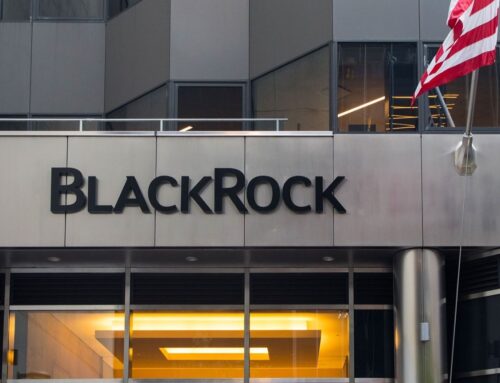How a top marijuana company landed Kentucky’s most-coveted medical cannabis license
April 30, 2025
One of the largest marijuana companies in the country landed one of the most lucrative medical cannabis licenses in Kentucky, renewing concerns that out-of-state companies were able to game the state’s lottery process with a flood of expensive applications.
Chicago-based Cresco Labs held a ribbon cutting ceremony last week in Winchester with Gov. Andy Beshear, showing off the large facility where they plan to grow medical marijuana.
In March, Cresco announced its management services agreement with the owner of a Tier 3 cultivator license in Kentucky, making it the ninth state it is doing business in as marijuana growers, processors or dispensaries. A company called KSKYAPP LLC won the license through a state-administered lottery in October, allowing it to operate one of the two largest cultivation facilities in the state.
Who specifically owns the LLC that owns this cultivator license? Kentucky Public Radio asked Beshear, Cresco CEO Charlie Batchell and Kentucky Office of Medical Cannabis Executive Director Sam Flynn that question at the April 22 event in Winchester, but neither said they were sure.
“So there’s an LLC that owns this facility, right? There’s this LLC that owns that LLC, and there’s an individual or individuals that own the LLC that owns the LLC that owns this facility,” Flynn said. Both Batchell and Flynn said they could not remember the name of the owner.
In actuality, the owner is Batchell himself.
At the beginning of this year, an LLC owned by Batchell took over ownership of KSKYAPP. As was first reported by KPR in November, KSKYAPP was previously owned by the wife of a Cresco board member and the company’s former chief operating officer, according to its application for the license.
This company then purchased the Winchester facility for $4.8 million on April 1, with Batchell signing the deed.
A review of state records and medical cannabis license applications shows this wasn’t just the luck of the draw working in Cresco’s favor. More than 20 new companies formed just ahead of the lottery had ties to Cresco. Together they submitted 128 applications for a license — at a grand cost of $740,000 — showing proof of more than $20 million in capital.
Two applications wound up hitting, landing Cresco access to the cultivator license in Winchester and a dispensary license in Floyd County.
While Beshear has defended his administration’s lottery process for awarding medical cannabis licenses, it has also received heavy criticism. Chief among those have been Kentucky hemp farmers looking to land cultivator licenses. They allege that large out-of-state marijuana companies were able to game the process by flooding the state with expensive applications to ensure success.
In the end, Kentucky hemp farmers received none of the state’s 16 cultivator licenses. A review of the applications of license-winning companies also found a large majority were owned by people out of state, with most having ties to big cannabis companies operating for years in other states.
Two weeks ago, state Auditor Allison Ball informed the Office of Medical Cannabis in a letter that her office was investigating how it administered the lottery process for awarding business licenses, stating they had received “numerous complaints.” The auditor sought a wide range of records from the office, including all applications, license sales and internal communications of staff.
Cresco’s path to operating multiple medical cannabis licenses has similarities to that of Dark Horse Cannabis, an Arkansas company tied to LLCs that won four dispensary licenses, one processor license and the only other Tier 3 cultivator license, allowing marijuana to be grown in a facility up to 25,000 square feet.
As first reported by KPR last year, a Dark Horse executive created at least 350 new companies in Kentucky just ahead of the application deadline last summer. These companies then collectively submitted roughly the same number of applications, at a cost of more than $2.5 million.
Though Kentucky regulations prohibit medical marijuana licensees from vertically integrating — holding licenses in the different cultivator, processor or dispensary categories at the same time — KPR last year obtained an investment pitch deck for the parent company of both Dark Horse Cannabis and what it called the “Kentucky vertical,” which stated it would have licenses in all three tiers in Kentucky.
Amid complaints, Flynn said last year that the company broke no rules, as Dark Horse was not specifically listed as an owner on any of the license applications and its pitch deck indicated it instead “acquired management services agreements and contracts with these businesses.”
Cresco now touts a management services agreement with the cultivator licensee in Winchester, which is owned by a company that is owned by Cresco’s own CEO.
Cresco lands contract with its own CEO
At Cresco’s ribbon-cutting ceremony in Winchester, KPR asked CEO Charlie Batchell if KSKYAPP is still the owner of the Tier 3 cultivator license and how Cresco came about securing the management services agreement with them.
“So, I believe the ownership has been transferred at this point,” Batchell answered. “But the management service agreement is the agreement that will allow us to operate the facility with that license, and again, bring the Cresco approach to cannabis to Kentucky.”
Asked who is the new owner, Batchell replied that it is an LLC, but said he was not sure of its title and would have to check.

Joe Sonka
/
KPR
Beshear deflected the question of who now owned the cultivator license to Flynn, who said its ownership had changed hands but did not recall to whom.
“So I believe there’s an individual that owns the LLC, that owns this LLC, that owns this facility,” Flynn said, before adding that he didn’t have the names of those entities “off the top of my head.”
After a written request for the ownership structure of the cultivator licensee in Winchester that same day, a spokesperson for the Cabinet for Health and Family Services replied two days later with an email supplying the answer: The new owner of KSKYAPP is CIBKYAPP, LLC, which is solely owned by Batchell.
The Clark County PVA’s office also supplied documentation of KSKYAPP’s purchase of the Winchester facility a few weeks earlier for $4.8 million, which was signed by Batchell.
New LLCs tied to Cresco entered many tickets into license lottery
CIBKYAPP was one of the 21 new companies formed in Kentucky just ahead of the license application deadline last summer with ties to Cresco, which then collectively submitted more than 100 applications.
Each of the companies listed the mailing address of their principal office as that of Blue Equity in downtown Louisville. The chairman and managing director of Blue Equity is Jonathan Blue, who was introduced at the Winchester ribbon-cutting as Cresco’s “local Kentucky partner.”
“We brought Cresco in as a partner for the investment in the state of Kentucky,” Blue told KPR after the event, adding that they were involved before and during the lottery process.
Blue and his investment firm are not listed as owners, principals or financial backers of the two LLCs that won licenses in the lottery, according to their license applications.
BSRKYAPP LLC won a dispensary license in Floyd County, with its application listing its owner as Barrington Rutherford. He served as a senior vice president at Cresco for four years, before becoming board chairman of a large commercial real estate and advisory firm serving the cannabis industry in New York.
The Cabinet for Health and Family Services has not yet turned over the applications for all of these companies in response to an open records request.
In addition to sharing an address with Blue Equity, the names of the companies appear to share a similar form, containing the initials of the owner listed in the application, followed by “KYAPP LLC.” The owner of KSKYAPP was originally Krista Sampson, while BSRKYAPP and CIBKYAPP contain the full initials of Rutherford and Batchell.
One company submitted eight processor license applications, but came up empty. Five different companies each filed applications for Tier 2 and Tier 3 cultivator licenses, which KSKYAPP won. Eleven companies submitted a dispensary license application in nearly all of the state’s 11 regions, totaling 110, with only BSRKYAPP landing a winner in the lottery.
Beshear touts the experience of Cresco as a plus for program
Just before the ribbon cutting at Cresco’s Winchester facility, Beshear said those gathered were there because they are “dedicated to ensuring every Kentuckian with a qualifying condition has access to medical cannabis.”
The governor added that they are “also committed to ensuring that every new business, from cultivators to dispensaries, can thrive in their new Kentucky home” — echoing the “New Kentucky Home” pitch of his administration to attract new business to the state.
Beshear lauded Cresco’s planned $15.4 million investment in Clark County and its commitment to hiring local contractors and employees, adding that “we have an industry leader that knows what they’re doing, that’s going to be a part of this community for decades to come.”
Speaking to the media afterward, the governor again highlighted how important it was that such a vital facility to the medical cannabis program be operated by a company with a dozen years of experience.
“They know what they’re doing, and they’ve got the financial backing to get — this is the largest cultivator — up and running,” Beshear said. “And if you want product on the shelf to be safe and to be there for people as quickly as possible, bringing in someone with experience is a good thing … I think they said we’re their ninth state, which means they know what they’re doing, and people are going to have confidence in the product.”
Referencing the state auditor’s investigation and complaints about the fairness of the lottery licensing process, Beshear again defended the lottery as the most transparent process, even though some applicants didn’t like the results. He also repeated his argument that Kentucky’s process will help it avoid lawsuits that have delayed other state programs that awarded licenses based on competitive scoring systems or favored in-state applicants.
Asked if state regulations still stand that prohibit vertical integration, Beshear said they do, but apply specifically to the owners of licenses, not companies they contract to operate them.
“What you see are different companies with different owners that are contracting with different groups to run operations,” Beshear said. “Basically, these are Kentucky businesses that say ‘we have never grown cannabis or processed cannabis before, and we are going to contract with some experts to come in and help run our facility.’”
Asked if KSKYAPP under the ownership of the wife of a Cresto board member amounted to such a Kentucky business, or if this was a loophole to steer a lucrative management agreement for Cresco, Beshear answered: “I haven’t seen the LLC, but you have to form a Kentucky-based company with an owner, but that owner can contract with other groups that are out there.”
Again asked if it was just a coincidence that Cresco landed the management agreement with the licensee, Beshear replied: “We’ll get you that information. I told you I hadn’t seen it.”
Batchell was complimentary of the way the Beshear administration set up the licensing process, saying they “did a phenomenal job” of looking at the experience of other states, coming up with “a very reasonable approach to cannabis.”
Asked about criticism of Kentucky’s licensing process, Batchell said Cresco “put ourselves in a good position through local partnerships to make sure that we had enough local knowledge to — if we were fortunate enough to be successful in obtaining a license here — that we’d be able to move forward really efficiently and bring Cresco approach to medical cannabis to Kentucky.”
Batchell says the first phase of the Winchester cultivation facility will be roughly 5,000 square feet — far lower than the 25,000 square feet maximum for the license — which they will expand in later phases. He expects they will be able to plant seeds by this summer and harvest plants to send to processors and dispensaries by the end of the year.
Only one other cultivator licensee has held an event to tout their facility in Kentucky. Two weeks ago, Colorado-based Centaurus Farms broke ground on where their Tier 2 facility will be built in Monticello, expecting to be in operation early next year.
Part of the criticism from hemp farmers in Kentucky is that many had already invested in building secure greenhouses needed to grow medical cannabis and could start right away if they had won a license, estimating they could harvest plants early into 2025.
Michael Adair was one of those farmers with experience in hemp, telling KPR last November that out-of-state companies landing licenses would mean a longer delay for patients seeking medicine at dispensaries.
“Six months, a year from now, when there’s nothing on the shelves and people are screaming, and you’ve got big cannabis out here doing stuff, it’s gonna look real, real bad,” Adair said.
Beshear originally estimated that medical cannabis would be available for Kentucky patients at dispensaries in the first quarter of 2025, but recently pushed his estimate back to late summer or fall.
Asked in Winchester how this could be possible — considering the timeline of the only two cultivators to publicly announce their facilities — Beshear said “that’s my best estimate right now, and when we have another one, we’ll provide it.”
State government and politics reporting is supported in part by the Corporation for Public Broadcasting.
Search
RECENT PRESS RELEASES
Related Post



